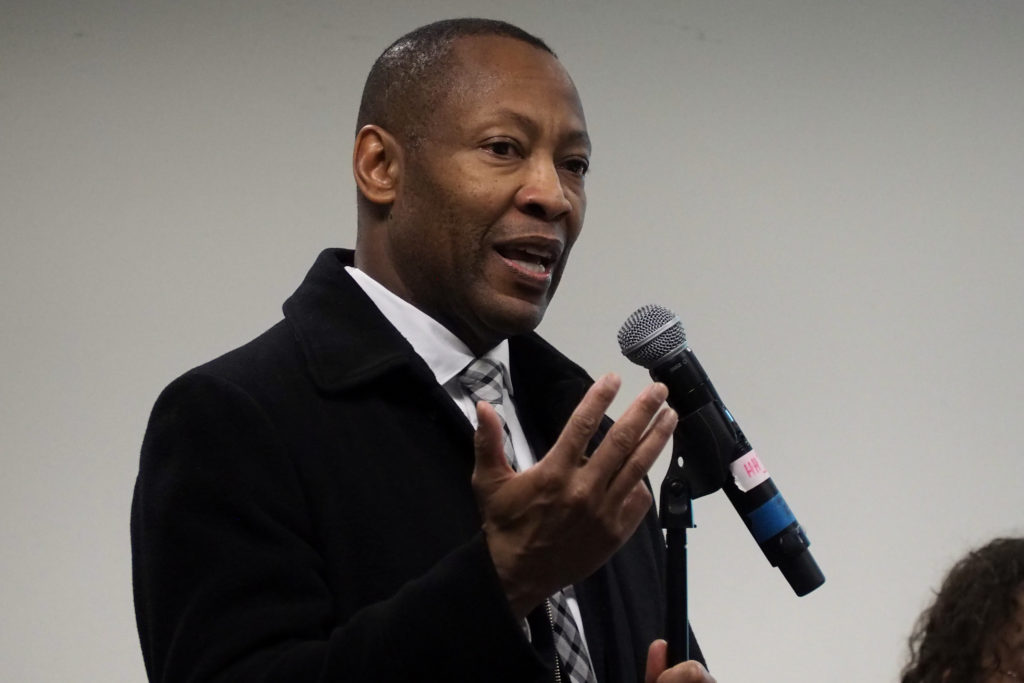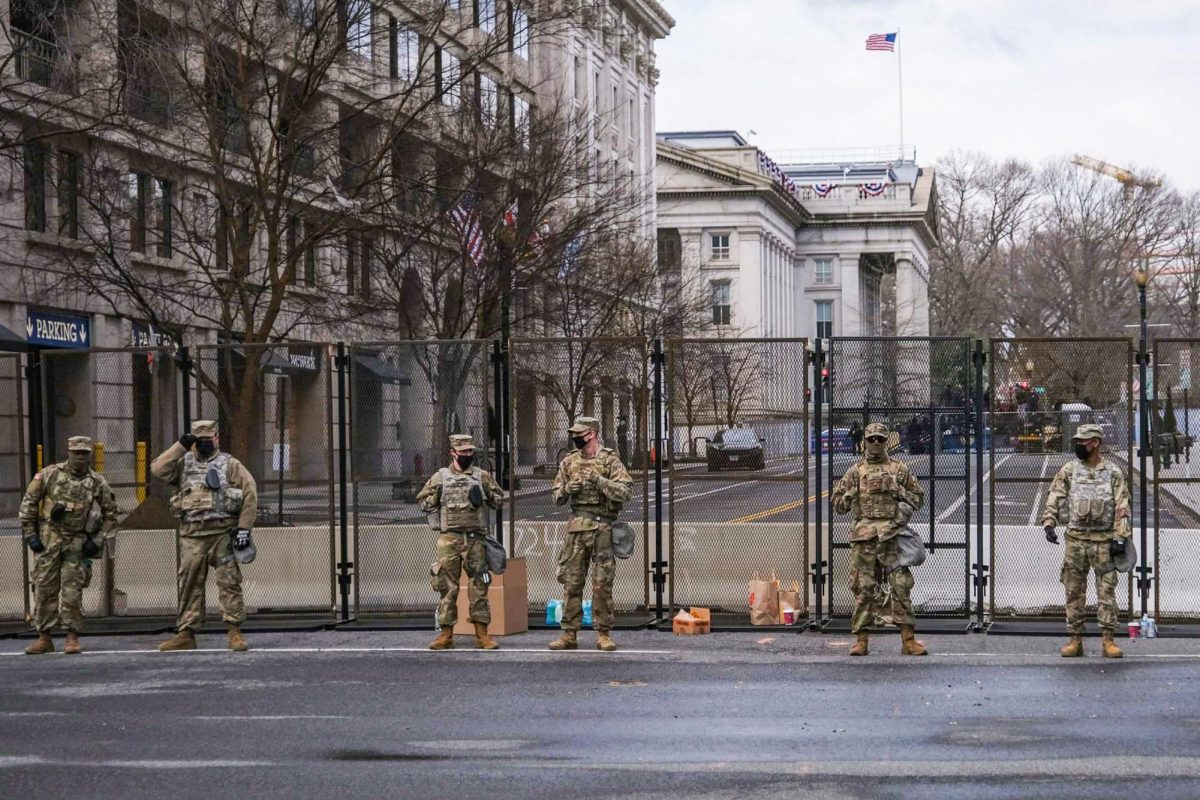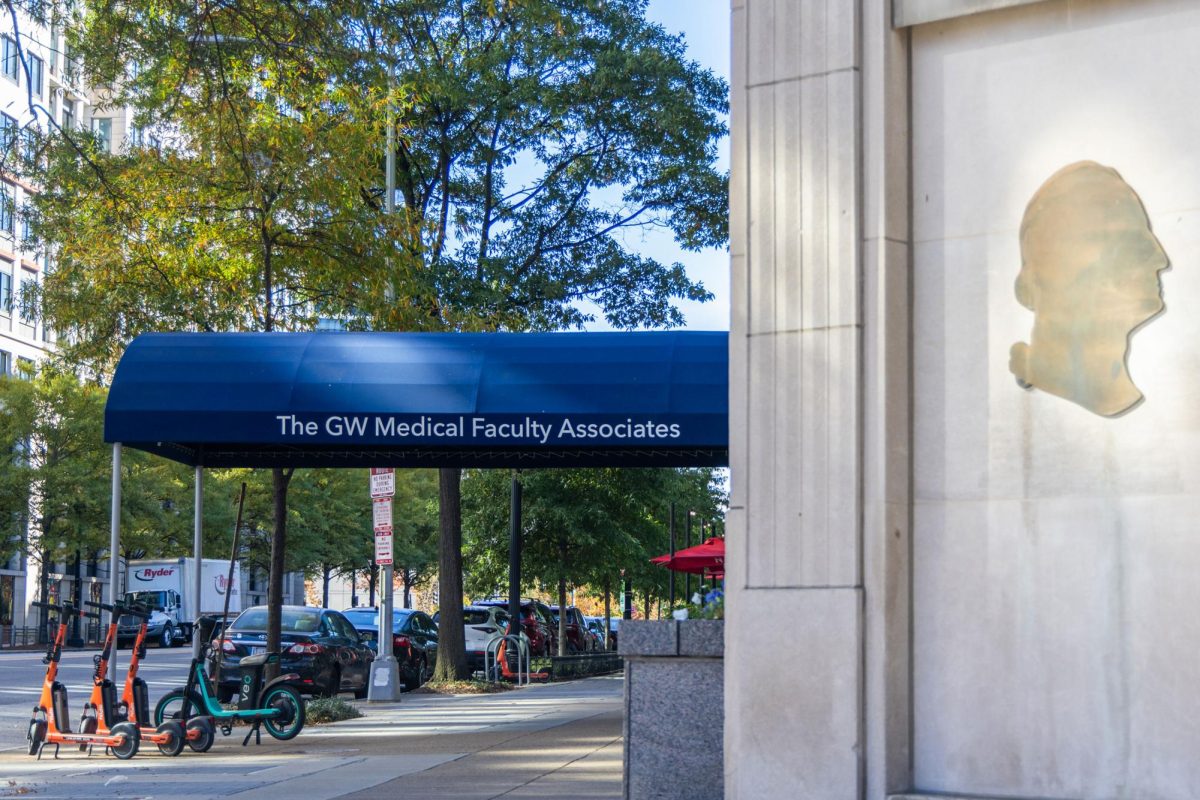Updated: Oct. 13, 2020 at 10:41 a.m.
The GW Police Department is formalizing plans to prevent racial profiling and increase transparency on campus, as the University’s police chief continues his push to amend GWPD’s relationship with students.
GWPD Chief James Tate said at a Faculty Senate meeting Friday that he plans to release the department’s first-ever racial profiling report March 21 and start limiting officers’ presence in low-crime areas to hold officers accountable and ensure campus remains a safe place for the GW community. Tate also revealed plans to reform the police force’s entry-level requirements with an improved police academy curriculum and a hiring process that includes physical and written assessments and a panel interview process with students, staff and faculty.
Tate presented GWPD’s “priorities and initiatives,” which have so far been highlighted this year through reforms like a training program, body-worn and in-car cameras and plans to hire a community outreach officer.
Tate’s strides to enhance the community’s trust in GWPD follows an incident in which an officer was placed on administrative leave after he allegedly pushed a student protester down a set of stairs outside University President Thomas LeBlanc’s on-campus residence. Officials laid out reform measures a month later, but the Black Student Union wrote a letter to GWPD amid anti-racism protests over the summer, reigniting calls for police reform on campus, across D.C. and throughout the country.
“We are public servants,” Tate said at the meeting. “We are not warriors. And what I mean by that is, for some, if they were ever in this mindset that it’s us against them, that has to go. That’s not what we’re about. We’re here to serve our public, we’re here to keep everyone safe and most importantly, we’re here to make sure we are a resource for our students, staff and faculty.”
Tate said the racial profiling report would collect data from pedestrian stops to identify the ethnicity of those who are stopped, whether officers launched a search of the person and vehicle and whether officers acquired consent to do so. The report will display annual findings and will be posted on GWPD’s website, Tate said.
“Most police agencies across the country, they submit a racial profiling report to their governing body every year, and so here at the PD we will implement a policy that strictly prohibits racial profiling, and we’ll produce a report that captures data that we believe the community will find helpful,” Tate said.
Tate said he also plans to publish a statistical overview report, which will be released Jan. 21, to share with the community the number of “internal affairs investigations,” arrests and annual service calls that the department logs.
Tate said instead of intimidating students with law enforcement around campus, he wants students to feel comfortable when they see an officer so they can recognize the face of the officer rather than the uniform.
Tate said he wants to expand GWPD’s abilities to launch their own criminal investigations, often handled by the Metropolitan Police Department, to minimize the role of MPD on campus.
“I also want to make sure that we’re not engaging in what I call over-policing – having uniformed officers in places where there’s not a lot of law enforcement activity,” Tate said. “Therefore, we really don’t need a police officer there, particularly because it comes across as being intimidating to our students or anyone else.”
Tate also outlined plans to sharpen the department’s entry-level requirements – from the curriculum of the department’s police academy to the current hiring process standards, saying GWPD is “not in line with best practice across the country.” GWPD officers currently can be hired after passing a psychological test and a “medical/physical,” but he said the department should implement physical and written exams.
Tate said new officers would also be required to sit before a panel made up of officers, staff, students and potentially faculty members depending on “the level” of their position. He said students have been included in the interviewing stages of the hiring process at other institutions, but GWPD has failed to adopt the measure in previous years.
Tate said he’s preparing to hire a student who can act as a liaison between GWPD and other students, as well as fill the community outreach officer position with an officer currently serving on the force who will run social media accounts, coordinate with student organizations and plan events.
“We can’t give ourselves trust and legitimacy,” Tate said. “Those two things have to be conferred on us by the community that we serve, and that’s the only way we can really be a successful police department is to have those two.”
This post has been updated to correct the following:
The Hatchet incorrectly reported that GWPD’s racial profiling report would collect information from traffic stops. It will collect information from pedestrian stops. We regret this error.







